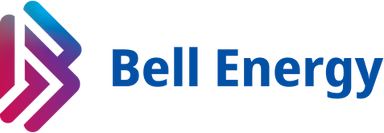Reliability, Availability and Maintainability (RAM) Study
Bell Energy is one of leading companies who have experience performing Reliability, Availability and Maintainability (RAM) studies for the following sectors:
- Oil and Gas Production Facilities, both onshore and offshore
- Refineries
- Petrochemicals
- Gas Plants
- Fertilizer and Chemical Industries
- Transportation Sector such as Metros
- Wind & Solar Power Sector
- HVDC Converter Platforms
- Semiconductor Manufacturing

When should RAM be performed?
Pre-FEED – RAM analysis can be performed during the Pre-FEED stage to compare design options to select the option that provides the most optimum production availability at the lowest capital and operational expenditure budget.
FEED – RAM analysis performed during the FEED phase can help in identifying critical equipment and systems that if unavailable can impact production. RAM performed at the FEED stage can help in Final Investment Decisions (FIDs) for identifying spare requirements, equipment redundancies and multiple train operations.
Detailed Engineering – During the Detailed Engineering phase, the RAM study can help validate the final design where details of all vendor, licensor equipment and technology are available.
Operations – When the facility is in operations, the RAM study can help in validating the design with as-built information and actual equipment reliability data collected during the operations of the facility.

What are the benefits of RAM study?
- Determine overall production availability for various modes of operation
- Helps provide assurance to lenders and banks on the projects viability with respect to the chosen design and technology option
- Determine spare part requirements
- Estimate turndown periods in continuous processing plants
- Optimize maintenance and sparing costs
- Helps decrease in the number and duration of unplanned outages
- Optimization of CAPEX and OPEX
- Forecast equipment life-cycle costs
- Estimate maintenance resources based on equipment criticality
- Logistics Planning
- RAM is a well-designed asset optimization program that can significantly lower project costs.
- Debottlenecking of equipment and systems and improve productivity
How can Bell Energy help?
- Perform Failure Modes Effects and Criticality Assessment (FMECA) to determine failure modes, its effects on the Plant Availability, identify potential preventive measures and maintenance strategy, validate current design measures regarding criticality of components.
- Produce Reliability Block Diagram for all units and for all modes of operation
- Assess the plant availability based on the base configuration, and compare against the target availability set for the facility, based on the production profile and design capacity
- Identify and rank the equipment and sub-systems which are major contributors towards plant unavailability. Ranking is based on the estimated equipment / sub-system contribution towards plant unavailability;
- Verify that the sparing philosophy to achieve the required availability figures;
- Perform Equipment Criticality Assessment for all the equipment for the facility
- Propose and assess potential cost-effective optimization options to ensure the target plant availability can be achieved, where appropriate.
- Perform Sensitivity Analysis to determine design options

